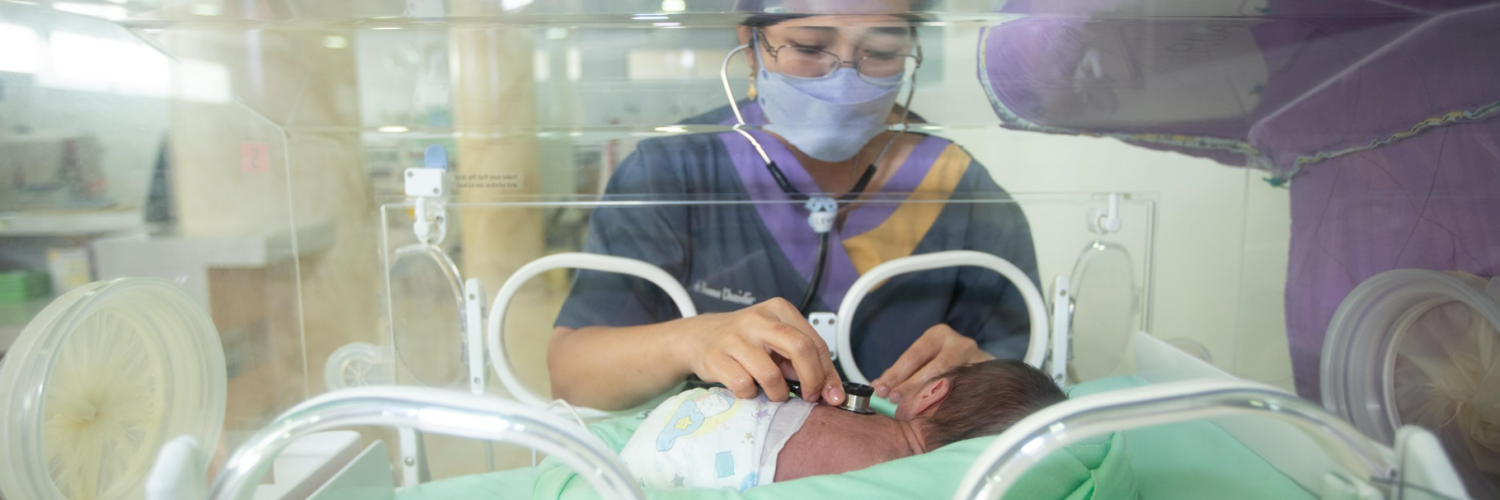Following the end of the acute phase of the COVID-19 response the World Health Organization (WHO) and European Union have supported the Ministry of Health and partners to conduct crucial research on the impact of COVID-19 on maternal and newborn health and to better understand disruptions to essential health services, with the aim of building a stronger, more resilient health system.
In a WHO-supported study carried out by the Centre for Child Health, Pediatric Research Office, University of Gadjah Mada, from June through September 2023, researchers analyzed the medical records of 4945 pregnant women and their newborns (4920) and interviewed programme managers and health workers from eight selected hospitals in four provinces of Java Island.
The researchers found a six-fold increase in the risk of mortality among pregnant women with COVID-19 compared to those without. Among those with COVID-19, the risk of mortality was found to be 12 times higher for those with moderate to severe symptoms compared to those who were asymptomatic or with mild symptoms. The study underscored the effectiveness of vaccination for COVID-19 in mitigating the risk of mortality among pregnant women, highlighting the critical need for increased vaccination uptake.
The results were aligned with previous, smaller-scale studies in Indonesia, which showed that pregnant women have an increased risk of progressing to severe COVID-19 compared with non-pregnant women of a similar age. The results also aligned with recent global research that suggests that pregnant or recently pregnant women with COVID-19 are more likely to be admitted to the intensive care unit or need respiratory support when compared with non-pregnant women of reproductive age.
As part of the same study, researchers identified that disruptions in maternal and newborn health services were primarily related to inadequate surge capacity among hospital staff, along with limitations in capacity at the primary health care level for maternal and newborn health care. They found that hospitals with well-established disaster plans demonstrated superior coping capabilities, such as by optimizing the use of space and supplies, task-shifting among doctors, deferral of surgeries and dental services, and prudent use of oxygen resources.
At the primary level, researchers identified a lack of standard operating procedures for pandemic response and infection prevention control, as well as an inadequate supply of personal protective equipment and medical oxygen. The results highlighted the critical need for robust referral systems and health facilities with well-established disaster plans to effectively address and manage risks.
WHO and the Ministry of Health will use these findings to inform the development of national guidelines aimed at strengthening the health system’s capacity to better respond to acute public health events and minimize disruptions to essential services, including for maternal and newborn health.
Source: World Health Organization
WHO, Ministry of Health and partners conduct crucial research on the impact of COVID-19 on maternal and newborn health and related service disruptions





